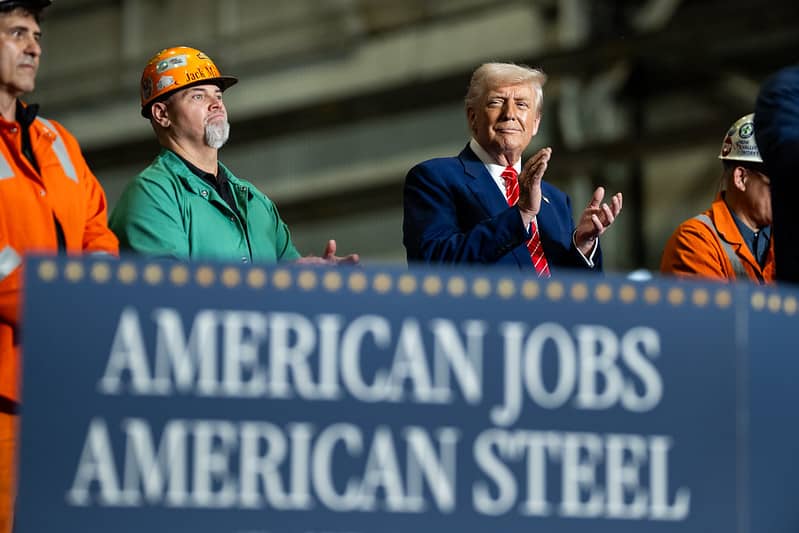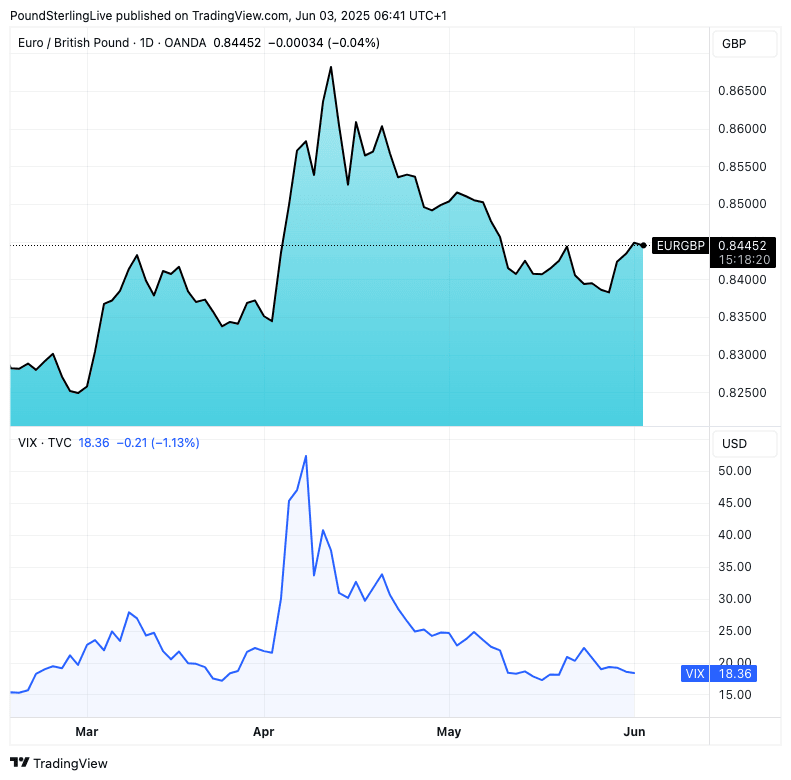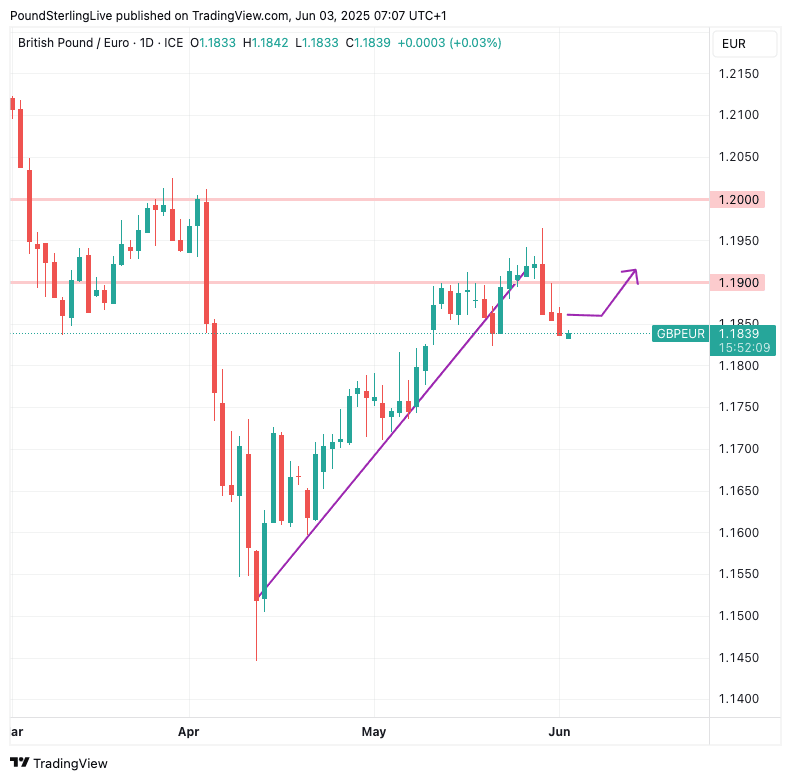
Above: Trump's doubling of steel tariffs caught markets by surprise, tempering enthusiasm for stocks, and prompting a fall in the Pound vs. Euro. Image: Official White House Photo by Daniel Torok.
Pound Sterling's relationship with volatility will keep it on the back foot against the Euro.
Equity market volatility is poised to tick higher again as Donald Trump beats the tariff war drums once more. This means weaker stocks and a softer Pound relative to the Euro.
"We think we're past peak optimism on the tariffs side, suggesting that we can see a recoupling of geomacro uncertainty and macro volatility once again," says Mark McCormick, Head of FX and EM Strategy at TD Securities.
China hinted at a possible escalation in renewed trade tensions after Beijing said Washington had "seriously undermined” a recent tariff truce, threatening to defend its interests.
This was after Washington accused the Chinese government of dragging its feet on lifting export controls on rare earths, which the U.S. see as a linchpin of the truce arranged in Geneva in May.
The Pound to Euro exchange rate (GBP/EUR) is negatively correlated with volatility, falling when stocks come under pressure, making it a challenging environment for the UK currency to navigate.
The most important measure of volatility, the Volatility Index (VIX), is sometimes called the "fear gauge" because it measures expected volatility in the S&P 500 over the next 30 days, based on options prices.
When investors anticipate negative news, such as poor earnings, negative tariff headlines, or geopolitical tension, they buy protective options (like puts), which increases implied volatility.
More demand for options = higher implied volatility = higher VIX.
Above: The EUR/GBP (top) and the volatility index. During periods of high volatility the Euro rallies against Pound Sterling.
"The market is managing a heavy load of drivers, including a mix of tariff news, term premium shocks, and data," says McCormick. "Uncertainty is here to stay and could linger longer... In short, expect more volatility, not less uncertainty."
China hinted at possible retaliation after Beijing said Washington had "seriously undermined” a recent tariff truce, threatening to defend its interests.
This was after Trump said China had "totally violated" the U.S.-China trade deal struck in May, bringing to an end the steady improvement in trade relations between the two countries. In Particular, the U.S. says China is delaying the lifting of export controls on rare earths, which the U.S. see as a linchpin of the truce arranged in Geneva in May.
"The pivotal event sparking fresh market anxiety was President Donald Trump's announcement of plans to double tariffs on steel and aluminium imports to 50%, a move that has reignited fears of a full-blown trade war with China and potentially other trading partners," says Rania Gule, Senior Market Analyst at XS.com.
Above: GBP/EUR at daily intervals. Our Week Ahead Forecast still calls for a resumption of gains. The single biggest risk to the view is a pick-up in stock market volatility.
However, investors aren't to be panicked just yet, judging that a resolution will be found, with White House Press Secretary Karoline Leavitt saying on Monday that she expected Trump and Xi Jinping to talk directly this week.
There is, nevertheless, the risk of complacency, as many will judge the latest developments as negotiating manoeuvres by the U.S. President.
Meanwhile, the European Union issued a fresh warning of countermeasures if Trump follows through on his tariff threats.
This was after Trump said he was to increase the import tariff on steel and aluminium to 50%, saying it would undermine efforts to strike a new trade accord.
"Markets were once again caught in the vicious loop of trade war escalation and de-escalation overnight on the back of worries that trade tensions are on the rise again between the US and China," says Valentin Marinov, Head of G10 FX Strategy at Crédit Agricole.
The Pound-Euro exchange rate slumped to as low as 1.15 in early April after Trump announced his 'Liberation Day' tariffs, which proved to be far more severe than expected, raising fears that the U.S. economy would suffer a notable slowdown.
Stocks slumped and volatility surged, but soon a recovery set in as investors welcomed Trump's desire to strike multi-lateral deals to lower the overall impact of tariffs.
The Pound peaked at €1.1950 just last week, with investors convinced that the worst had passed for the trade war.
However, Trump's late-Friday tariff hike and verbal strike at China served as a reminder that the U.S. President is a firm believer in the utility of tariffs and might be growing frustrated with the lack of substantive progress in talks and China's reticence to fulfil obligations under the truce agreed in May.
"The tariffs theme has peaked and there is clearly less and less reaction to each tariff headline. The tariffs are going up and the tariffs are going down, but people are getting bored of it," says Brent Donnelly, analyst at Spectra Markets.
The risk for stocks and GBP/EUR is that this boredom can lead to complacency.


